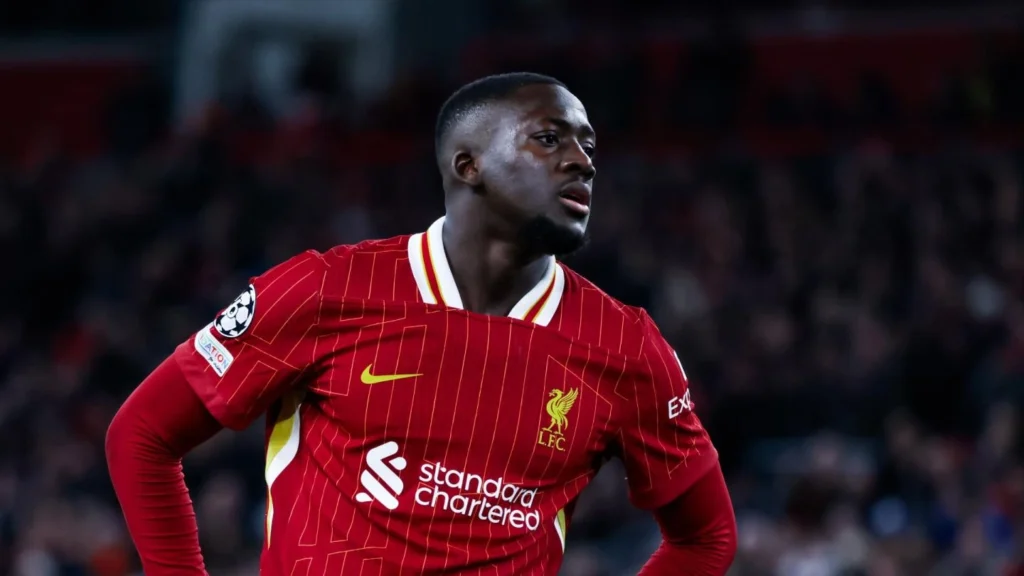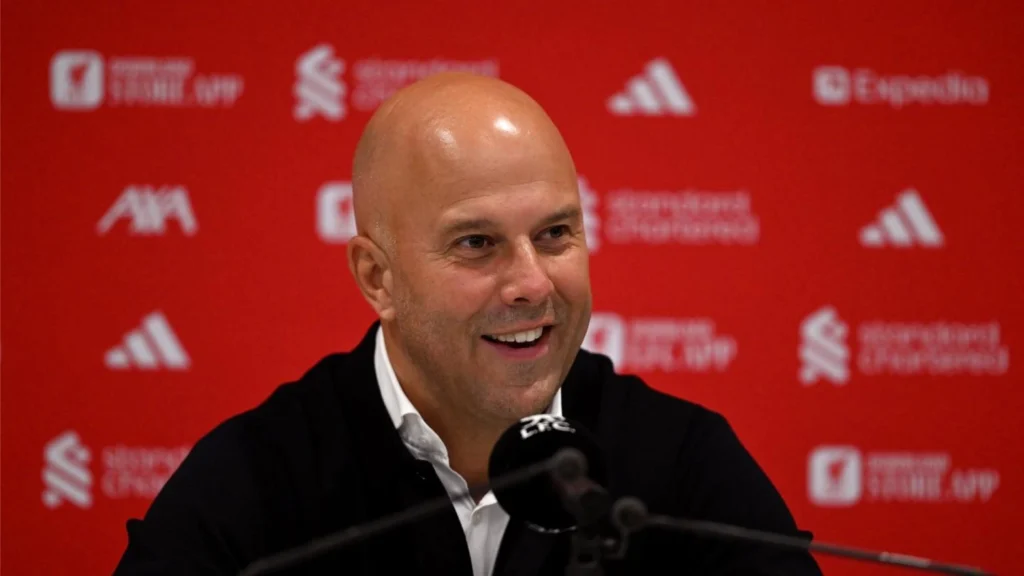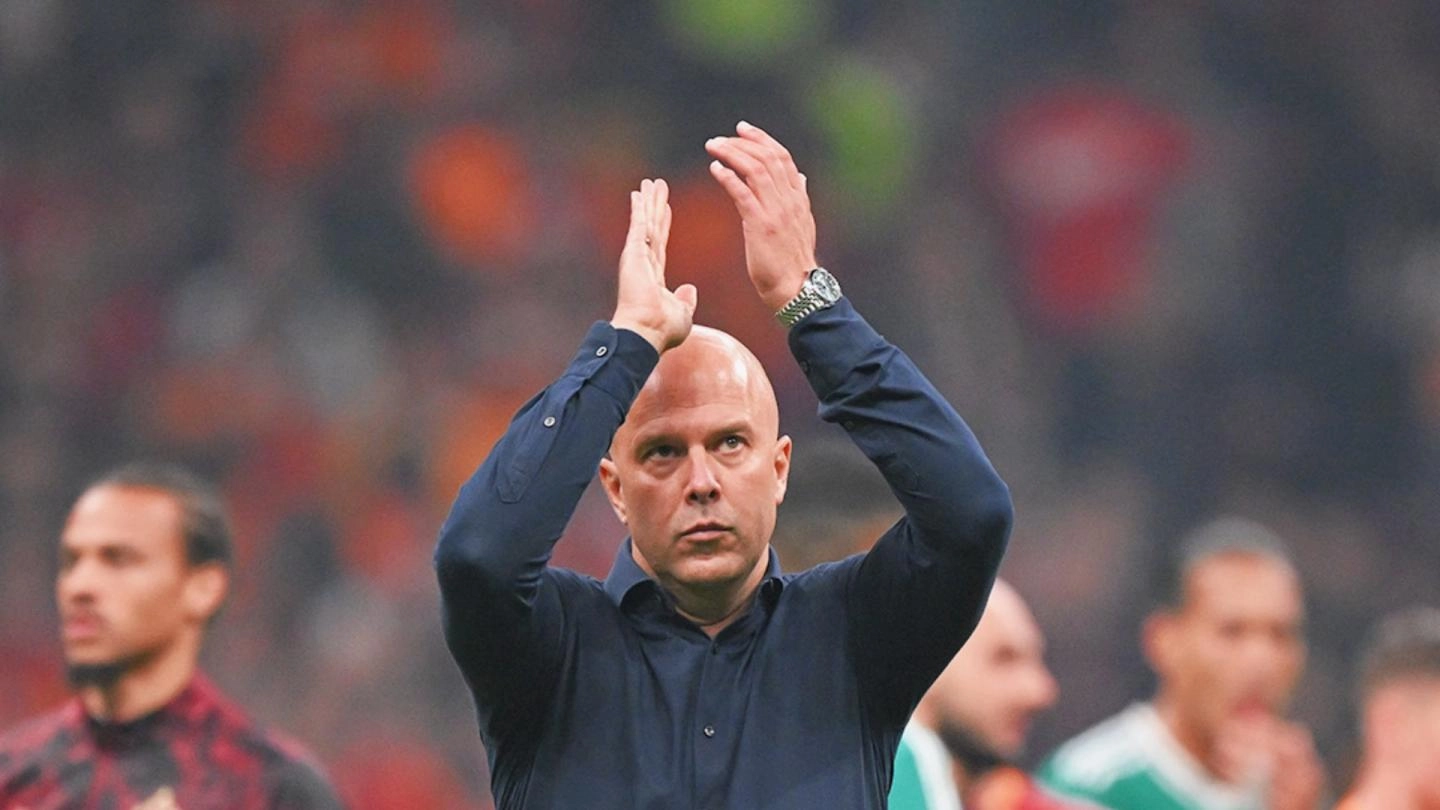The atmosphere at Anfield on Wednesday night was one of stunned disbelief. Liverpool, a club accustomed to European glory under these famous floodlights, had just suffered a humiliating 4-1 defeat to PSV Eindhoven in the Champions League. For manager Arne Slot, facing the media in the aftermath represented perhaps the most challenging press conference of his tenure at the club. His responses revealed a manager under immense pressure, yet refusing to surrender to the crisis engulfing his team.
The Tactical Breakdown: When Aggression Fades
Slot’s analysis of the match centered on a crucial tactical shift that occurred after halftime. Despite Liverpool equalizing through Dominik Szoboszlai following Ivan Perisic’s early penalty, the second half proved catastrophic. Guus Til restored PSV’s lead shortly after the restart, before Couhaib Driouech added two more goals to complete a comprehensive victory for the Dutch side.
When asked what changed after the interval, Slot was characteristically analytical. “Mainly the [second] goal I think, although in the start of the second half – before they scored the goal – we already struggled more than in the first half,” he explained. The manager identified a specific issue that undermined Liverpool’s game plan: “We had more problems, or we had more difficulty, in being as aggressive in the press as we were in the first half.”
The root cause, according to Slot, was an injury concern. “That had a bit to do with Hugo Ekitike, who straight after half-time felt his back a little bit and that’s why his press wasn’t as aggressive as the first 45 minutes.” This revelation highlights the fragility of tactical systems at the highest level, where a single player’s reduced effectiveness can unravel an entire approach.
Slot’s familiarity with Dutch football informed his understanding of the consequences. “I know, because I follow the Dutch league, if you are not aggressive enough against PSV then they have players who can outplay you because they are a very good team with very good football players on the ball,” he stated. This knowledge made the second-half collapse all the more frustrating, as he recognized exactly how PSV would exploit Liverpool’s reduced intensity.
Yet even after conceding the second goal, Slot believed his team created opportunities. “After they scored the second goal I think we had our chances to equalise, but not for the first time this season we didn’t take the chances we had.” This recurring theme of missed opportunities has become a painful pattern during Liverpool’s recent struggles.
Defending His Players: A Team Problem, Not Individual Failures
Throughout the press conference, Slot was resolute in his refusal to scapegoat individual players despite obvious errors contributing to goals. When pressed about individual mistakes, his response demonstrated both loyalty and tactical awareness.
“I think it is always about the team and I think we can all do better, individuals and the three [moments] you are talking about but I think this goes for everyone, including myself,” Slot insisted. His willingness to shoulder responsibility represented a crucial leadership moment during a period of intense scrutiny.
The manager continued: “I don’t think this is the time to emphasise on individual errors. It is more the time to talk about the team instead of the individual errors because individual errors are made in football.” This philosophical approach reflects modern coaching principles that emphasize collective responsibility over finger-pointing.
Slot elaborated on how teams should respond to mistakes: “We have to make sure that if we make them then we react or make it up so that it doesn’t lead to a goal and if it does lead to a goal that we are good enough then to come back into the game. That’s a team thing and not an individual thing.” This holistic view suggests he sees the defensive breakdowns as symptomatic of broader systemic issues rather than isolated incidents.
The Difficult Decision: Konate Substitution

One of the evening’s most scrutinized moments came when Slot replaced Ibrahima Konate with Federico Chiesa after Liverpool fell 3-1 behind. The decision risked appearing reactionary, particularly given that Konate had been involved in one of the errors leading to a goal.
Slot addressed this head-on, revealing the internal conflict he experienced. “Yes, I found that one difficult because up until the moment you were just describing I think he [Konate] played a good game,” the manager explained. His assessment demonstrates an ability to separate individual moments from overall performance.
The tactical reasoning behind the substitution was clear: “But, if you go 3-1 down, I think the thing that I have always done – and what I will keep doing – is then bringing an extra attacker in.” This reveals Slot’s commitment to attacking principles even in desperate circumstances, a philosophy that defines his coaching identity.
However, he acknowledged the optics of the decision. “I found that hard because I knew the outside world would probably then focus even more on the error he made, but I think it was the decision I had to make.” This awareness of external perception, combined with his willingness to make an unpopular choice, illustrates the pressures facing modern managers in the social media age.
The substitution ultimately proved ineffective, with Slot noting: “Unfortunately it didn’t lead to anything except they scored the 4-1.” This admission of tactical failure demonstrated his honesty in self-assessment.
Confronting the Crisis: Shell-Shocked or Still Fighting?
When asked whether his players appeared shell-shocked by the current run of form, Slot provided perhaps his most revealing answer of the evening. “I think it is a shock for everyone. For the players, for the journalists in here, for me, for everyone. This is a shock and it’s very, very, very unexpected if you look at the quality we have.”
This frank acknowledgment of the situation’s gravity contrasted with his assessment of the team’s mental state during the match. “Is it a lack of confidence? I didn’t see that in the first half,” he argued, pointing to Liverpool’s response to the early setback. “Of course, it is hard if after losing 3-0, straight into this game you concede a goal. I saw the mentality these players have shown so many times since I am here, came back in a way you would like to come back, created chances, we kept them in their half.”
Slot highlighted the team’s resilience in the face of multiple setbacks: “After another setback by conceding the 2-1, I also saw us creating chances again to score the 2-2.” However, he conceded that the weight of accumulated defeats eventually took its toll: “But, in the end of the game, I did see it affected maybe one or two players that we were 3-1 and 4-1 down, that’s true.”
This nuanced analysis suggests a manager who sees his team fighting against psychological barriers as much as tactical problems, a battle that becomes exponentially harder with each successive defeat.
The Pressure Mounts: Discussing His Own Future
The most uncomfortable questions inevitably centered on Slot’s position at the club. When asked whether discussion about his future was fair, his response was measured and realistic. “I don’t think it’s important if it is fair or not. But that it’s normal, that I understand,” he stated. “If any manager around the world loses football games, let alone as many as we have lost, it’s quite normal that people have an opinion about that.”
His acceptance of scrutiny as part of the job demonstrated maturity under pressure. “If that is fair or not fair, that’s for other people to judge. But that it’s normal, I think it is that if you lose so many times that people start talking about that.”
When directly asked about his level of worry regarding his position, Slot pushed back against the premise of the question. “I don’t agree with you that the quality [of Liverpool’s players] isn’t showing itself. I see enough moments that players show their quality but it doesn’t reflect in the score or in the results, that is clear.”
More significantly, he revealed his priorities during this crisis: “But no, I am not worried – what I mean with that is that my focus is on other things than worrying about my own position. I try to analyse [and] try to help the players as much as I can.”

In a moment of self-reflection, Slot acknowledged his own shortcomings. “It is obvious that I don’t do it in the way that I did it last season because when you talk about individual errors, I think that is also something that comes from a team effort. So, again, I need to do better and that is what I am trying to do every single day, to improve the team, and that is where my main focus is, to be honest.”
Boardroom Support: The Conversations That Matter
Regarding his relationship with Liverpool’s hierarchy during this difficult period, Slot provided insight into the dynamics at play. “Yeah, but not in the sense that they tell me every single minute, ‘We support you, we support you, we support you,’ but we talk a lot if we are winning, like last season, and if we are losing.”
He described the support as practical rather than merely emotional: “Then they are helpful to me, to the team, so yes we do have those conversations but they don’t call me every single minute of the day to tell me that they still trust me.” This portrayal of a working relationship based on substance rather than constant reassurance suggests a professional environment, though he added a caveat: “But we do have the normal conversations and in those conversations I feel the trust, but I haven’t spoken to them after this game yet, so let’s see.”
That final phrase carried weight, suggesting uncertainty about how the board might respond to yet another devastating defeat.
The Long Road to Recovery
When asked how long it takes him to recover from defeats, Slot’s answer revealed the psychological toll of management. “Long. Longer than after a win because after a win you’re straight away focused on the next one. Now you try to find answers as much as you can but that’s not as simple as people might think it is.”
His honesty about the difficulty of finding solutions was striking: “Because if it would have been that simple I would have used those answers for us to start winning again.” This admission that he lacks a quick fix may concern supporters, yet it also demonstrates realistic self-awareness rather than false optimism.
Slot outlined his approach to preparation during crisis: “But the focus is, as always in football, mainly about trying to prepare them for the next game and preparing them is not only tactically, that could also mean that I need to have individual conversations tomorrow or team conversations with players.”
He emphasized the collective effort being invested: “I try to put as much effort in as I can to improve the situation – not only me, by the way, my staff does the same and the players are putting in a lot, a lot, a lot of effort as well.” The repetition of “a lot” underscored his desire to convey the intensity of their work, even as results suggest otherwise.
Slot concluded with a defense of his players’ commitment: “Although when you look at a 3-0 loss and a 4-1 loss you tend to feel as if we don’t do enough, but again today I saw a team that was trying after multiple setbacks but unfortunately not able to get a result.”
The Uncertain Path Forward
As Arne Slot left the press conference room at Anfield, the magnitude of his challenge was clear. Liverpool’s crisis has evolved from a temporary setback into a potential catastrophe, with confidence draining and results spiraling. Yet throughout his responses, Slot maintained dignity, accepted responsibility, and refused to abandon his principles or his players.
Whether this approach will prove sufficient to reverse Liverpool’s fortunes remains uncertain. What is clear is that Slot faces the defining period of his managerial career, where every decision, every word, and every result carries enormous consequences. The coming weeks will determine whether his steady hand can guide Liverpool through this storm or whether the club’s hierarchy will decide a change is necessary.
For now, Slot continues to focus on preparation, analysis, and improvement, even as the pressure intensifies with each passing day. In the unforgiving world of elite football management, his resolve will face its sternest test.
🔴Find the Latest News on Player Ratings | Transfers | Prematch | Postmatch
Thank you for your continued support, and let’s cheer Liverpool on to success in the upcoming match. Your thoughts are always welcome in the comments section. For further insights, you may explore the official Liverpool FC website by clicking here.
YNWA (You’ll Never Walk Alone)!
The Liverpool FC Times Team
LiverpoolFCTimes.com
